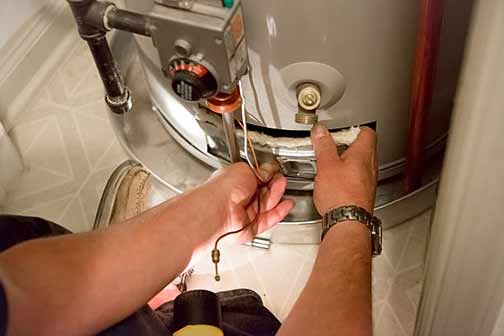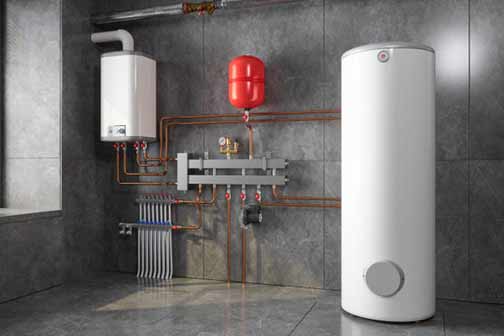Understanding the Importance of a Functional Hot Water System
A hot water system is an essential component of any household, providing the comfort and convenience of warm water for bathing, cleaning, and cooking. Its breakdown can lead to significant disruptions in daily routines, making it crucial to understand the importance of maintaining a functional system. Here we explore the fundamental role of hot water systems in modern living and the potential consequences of neglecting their upkeep.
Hot water systems are the unsung heroes of our daily lives, seamlessly providing hot water on demand. Imagine starting your day with a cold shower because your hot water system failed overnight. The inconvenience is immediate and palpable. Beyond personal comfort, hot water systems are integral to maintaining hygiene standards in homes. They ensure that dishes are properly sanitized, clothes are washed at appropriate temperatures, and personal hygiene is maintained. The importance of a functional hot water system extends beyond mere convenience; it is a cornerstone of modern living.
Neglecting the maintenance of a hot water system can lead to a cascade of issues. Minor problems, if ignored, can escalate into major breakdowns, leading to costly repairs or complete system replacements. Such disruptions can be particularly challenging for families, where the demand for hot water is constant. Understanding the critical role that hot water systems play in our lives underscores the necessity of proactive maintenance and timely repairs.
Common Symptoms Indicating a Hot Water System Breakdown
Identifying the signs of a hot water system breakdown early can prevent further damage and costly repairs. Recognizing the early warning signs of a hot water system malfunction is essential for preventing more serious issues. One of the most common symptoms is inconsistent water temperature. If you notice that your showers are fluctuating between hot and cold, it could indicate a problem with the thermostat or heating element. Another symptom to watch for is unusual noises coming from the system. These noises could be indicative of sediment buildup or worn-out components, both of which require immediate attention.
Leaks are another common symptom of a hot water system breakdown. Even a small leak can lead to significant water damage if not addressed promptly. Discolored water is also a red flag, as it may indicate rust or sediment accumulation within the tank. Lastly, reduced water pressure can signal blockages or system malfunctions. By staying vigilant and addressing these symptoms early, homeowners can prevent more extensive damage and costly repairs.

Issue 1: Inconsistent Water Temperature
One of the most noticeable problems in a hot water system breakdown is inconsistent water temperature. This can be caused by a malfunctioning thermostat or heating element, leading to fluctuating water temperatures that can disrupt daily activities. Exploring the causes and remedies for this issue can help homeowners take proactive measures to restore consistent water heating.
Inconsistent water temperature is not only frustrating but can also be indicative of deeper issues within the hot water system. The thermostat is often the culprit when it comes to fluctuating temperatures. If it is not functioning correctly, it cannot regulate the water temperature effectively, leading to unexpected cold or scalding hot water. Similarly, a faulty heating element can cause the water to heat unevenly or not at all.
To address this issue, homeowners should first check the thermostat settings and ensure they are correctly adjusted. If the problem persists, it may be necessary to replace the thermostat or heating element. Regular maintenance, such as flushing the tank to remove sediment buildup, can also help prevent temperature inconsistencies. By understanding the root causes of this issue, homeowners can take proactive steps to maintain a consistent water temperature.
Issue 2: Leaks and Water Damage
Leaks are a common issue in hot water systems that can result in significant water damage if not addressed promptly. This section delves into the causes of leaks, such as corroded pipes, faulty valves, or pressure issues, and emphasizes the importance of regular inspections to prevent extensive damage and costly repairs.
Leaks in a hot water system can cause more than just a wet floor; they can lead to structural damage, mold growth, and increased utility bills. Corroded pipes are a frequent cause of leaks, especially in older systems. Over time, the constant exposure to water can cause pipes to weaken and develop holes. Faulty valves can also lead to leaks, as they may not close properly, allowing water to escape.
Pressure issues within the system can exacerbate leaks. If the pressure is too high, it can strain the pipes and cause them to burst. Regular inspections of the hot water system can help identify potential weak points before they become major problems. Homeowners should also be vigilant for signs of leaks, such as damp spots on walls or ceilings, and address them immediately to prevent further damage.
Issue 3: Unusual Noises from the System
Unusual noises emanating from a hot water system often indicate underlying issues that require attention. Noises coming from a hot water system can range from a low rumble to loud banging sounds, each indicating different potential issues. Sediment buildup is a common cause of noise. As water is heated, minerals can settle at the bottom of the tank, creating a layer of sediment. This sediment can cause popping or rumbling noises as it interferes with the heating process.
Worn-out components, such as the heating element or pressure relief valve, can also produce unusual noises. These components may need to be replaced to restore the system to quiet operation. Regular maintenance, such as flushing the tank to remove sediment, can help prevent noise issues. If the noises persist, it may be necessary to consult a professional to diagnose and resolve the problem.
Issue 4: Discolored Water and Its Implications
Discolored water is a concerning symptom that can arise from a hot water system breakdown. It may indicate rust or sediment accumulation within the tank, affecting water quality and safety. Discolored water is not only unappealing but can also pose health risks. Rust-colored water often indicates corrosion within the tank or pipes, which can lead to the presence of harmful metals in the water supply. Sediment accumulation can also cause water to appear cloudy or muddy, affecting its taste and quality.
To address discolored water, homeowners should first determine the source of the problem. If the issue is due to rust, it may be necessary to replace the tank or pipes. Flushing the system can help remove sediment buildup and improve water clarity. Regular maintenance, such as checking for signs of corrosion and flushing the tank, can prevent discolored water and ensure a safe water supply.
Issue 5: Reduced Water Pressure
Reduced water pressure can significantly impact the functionality of a hot water system, making tasks like showering or washing dishes inefficient and frustrating. This section investigates the causes of low water pressure, such as blockages or system malfunctions, and provides strategies for restoring optimal water flow.
Low water pressure can turn simple tasks into frustrating endeavors. Blockages within the system are a common cause of reduced pressure. Sediment buildup or mineral deposits can restrict the flow of water, leading to decreased pressure. Additionally, leaks within the system can divert water and reduce pressure at the tap.
To restore water pressure, homeowners should first check for any visible leaks and repair them promptly. Flushing the system can help remove blockages and improve flow. If the problem persists, it may be necessary to contact a local plumber to identify and resolve the underlying issue. Regular maintenance, such as flushing the tank and checking for leaks, can help maintain optimal water pressure.

Preventive Measures to Avoid Hot Water System Breakdowns
Preventive maintenance is key to avoiding hot water system breakdowns and extending the lifespan of the equipment. Essential maintenance practices, such as regular inspections, timely repairs, and system upgrades, to ensure the system remains reliable and efficient.
Preventive maintenance is the most effective way to avoid hot water system breakdowns. Regular inspections can help identify potential issues before they become major problems. Homeowners should schedule annual inspections with a professional to assess the condition of the system and perform any necessary repairs or maintenance.
Timely repairs are crucial for preventing more extensive damage. Addressing issues as soon as they arise can save homeowners from costly repairs or replacements. Upgrading the system, such as replacing an old water heater tank with a more efficient model, can also improve performance and reduce the risk of breakdowns. By investing in preventive maintenance, homeowners can ensure their hot water system remains reliable and efficient for years to come.
Timely Repairs: The Key to Cost-Effective Solutions
Addressing issues promptly can save homeowners from costly repairs and replacements. Timely repairs are essential for maintaining the functionality and efficiency of a hot water system. Ignoring minor issues can lead to more significant problems, resulting in costly repairs or complete system replacements. By addressing issues as soon as they arise, homeowners can prevent further damage and save money in the long run.
Professional intervention is often necessary for diagnosing and resolving complex issues. A qualified plumber can assess the condition of the system, identify the root cause of the problem, and perform the necessary repairs. Early problem detection and resolution can also extend the lifespan of the system, reducing the need for frequent replacements. By prioritizing timely repairs, homeowners can ensure their hot water system remains functional and cost-effective.
Conclusion: Ensuring a Reliable Hot Water System
A reliable hot water system is crucial for maintaining comfort and convenience in any household. By understanding the common issues associated with system breakdowns and implementing preventive measures, homeowners can ensure their hot water system remains functional and efficient.
In conclusion, a reliable hot water system is essential for modern living. By recognizing the common symptoms of system breakdowns and addressing them promptly, homeowners can prevent more extensive damage and costly repairs. Implementing preventive measures, such as regular inspections and timely repairs of your water heater, can extend the lifespan of the system and ensure it remains efficient and reliable.
Homeowners should prioritize the maintenance of their hot water system to avoid disruptions and maintain comfort and convenience in their daily lives. By taking proactive steps to address issues and invest in preventive maintenance, homeowners can ensure their hot water system remains a dependable and cost-effective component of their household.


